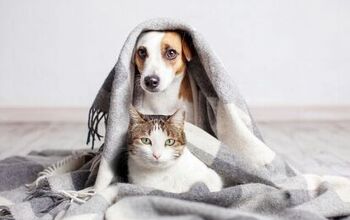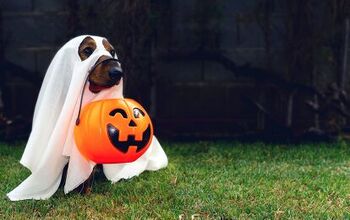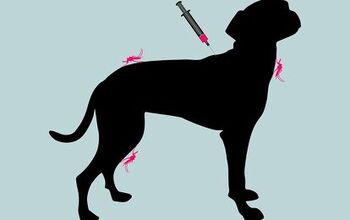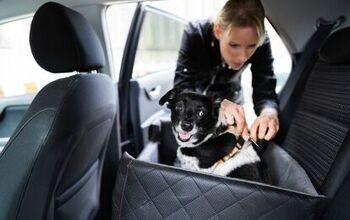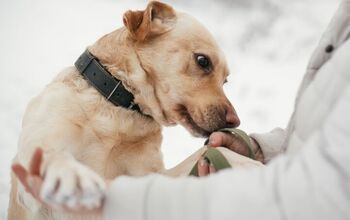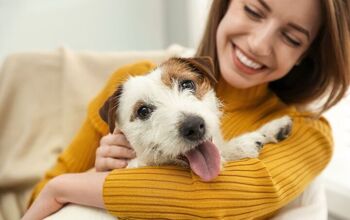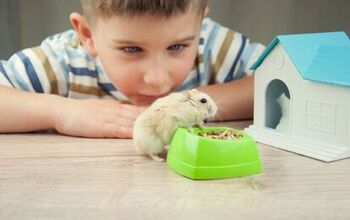Do Dogs Get Seasonal Depression?

When the temperatures drop, so does our mood – for some more than others. Seasonal affective disorder, also known as SAD or seasonal depression, is connected to shorter days, colder weather, and bleaker views and can affect people of all ages and backgrounds. But what about our dogs? Can they get seasonal depression as well? And if so, how would that work in their case? Here’s how things stand for our four-legged besties.
What is SAD and Can Dogs Get It?
Seasonal Affective Disorder, commonly called “SAD”, is a form of depression that typically appears in wintertime. It can start in October, and peak in January and February. Seasonal depression is common for us humans and can affect us in various ways. But did you know that dogs too can experience changes in behavior and mood in response to seasonal changes, quite similar to ours? However, it's important to note that dogs do not experience depression in the same way humans do because their emotional and cognitive processes are different.
Here are just a few things that can influence your pet’s mood in the winter:
- Reduced outdoor activity:
Cold weather, shorter daylight hours, and low temperatures can limit a dog's ability to spend time outdoors and engage in physical activity. This reduced exercise and stimulation can lead to restlessness or boredom. This is especially true for dogs that love to be active.
- Less exposure to natural light:
Dogs, like humans, rely on natural light to regulate their internal body clocks (circadian rhythms). Reduced exposure to natural light during the winter months may disrupt their sleep patterns and energy levels.
- Changes in routine:
Seasonal changes can sometimes disrupt a dog's daily routine. For example, daylight savings time can alter the timing of walks or meals, which may affect a dog's behavior. Weather can also affect your routine. Heavy snowfall? That means that your daily walk needs to be postponed, causing a disruption in your routine.
- Decreased socialization:
Some dogs love to make friends and socialize. In some cases, dogs may have less social interaction with other dogs and people during the winter months, which can impact their overall well-being and mood.
While these factors can contribute to changes in a dog's behavior or mood, it's essential to differentiate between expected adjustments to a new season and actual behavioral issues. If you notice significant and prolonged changes in your dog's behavior, such as loss of appetite, excessive lethargy, withdrawal, or other concerning symptoms, it's crucial to consult with a veterinarian. These symptoms may indicate underlying health issues or emotional distress that require professional assessment and treatment.
Of course, winter should not be something you or your pet dread. There are still ways you and your pet can have fun and enjoy this chilly time of the year, without experiencing the pangs of depression. It is true that winter has its negative effects, but you can mitigate these in various imaginative ways. For example, if you are in the northern parts of the world and suffer from a lack of natural light in winter, you can utilize special natural light lamps to bring back the brightness into your home. It can trick your pet’s brain into thinking it’s not winter outside and help “cure” those chilly weather blues they’ve been having.
You should also try your best to stick to your routine and keep it uninterrupted for as long as possible. For those days when you have to stay inside, don’t forget to provide a ton of interactive and fun toys for your dog to stay entertained. I love this squeaky puzzle cube for my own dogs, as it never fails to keep them occupied – we can play fetch with it or they can enjoy independent play by trying to dig out the tennis balls out of their rubbery cage. And trust me, that can keep any pooch going for hours.
All in all, winter should not be so horrible for your four-legged bestie, especially if you can plan your time in a fun and imaginative way! With your help, your pet won’t be affected by seasonal depression as much, even if they experienced some form of mood swings in the previous winters.

A proud mama to seven dogs and ten cats, Angela spends her days writing for her fellow pet parents and pampering her furballs, all of whom are rescues. When she's not gushing over her adorable cats or playing with her dogs, she can be found curled up with a good fantasy book.
More by Angela Vuckovic






